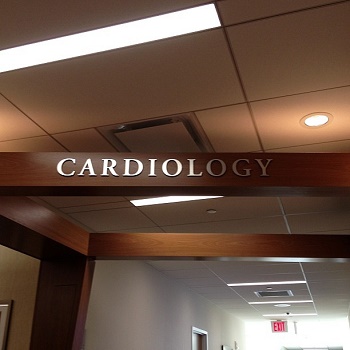Cardiology and Medical Negligence
When the treatment of a cardiology patient results in death, it is important to determine if the death is the result of medical negligence.
 Cardiology is the study of disorders and diseases of the heart and blood vessels. Patients experiencing severe heart-related diseases are treated by cardiologists. There are some instances when the treatment of cardiology patients may result in death, which makes it essential to determine whether the death could have been prevented or not. According to St. Louis medical malpractice lawyers, preventable deaths may result from any deviations from the standard method of treatment as described below.
Cardiology is the study of disorders and diseases of the heart and blood vessels. Patients experiencing severe heart-related diseases are treated by cardiologists. There are some instances when the treatment of cardiology patients may result in death, which makes it essential to determine whether the death could have been prevented or not. According to St. Louis medical malpractice lawyers, preventable deaths may result from any deviations from the standard method of treatment as described below.
Inside the Emergency Room
Chest pain may have deadly consequences if it is associated with the heart. Cardiologists should be vigilant of any signs of possible heart-related issues inside the emergency room. The nature of the complaint may show signs of chest pains associated with cardiac illness. This is typically demonstrated through a pressing feeling or heaviness along the chest area. Cardiac pain may also include breathing difficulties, nausea, sweatiness, and the spread of the pain into the arms, jaw, or neck.
Anginal pain results from physical activities and is normally alleviated through rest. An unstable angina is typically characterized by recurring anginal pain at an increasing rate for a few minutes. This condition may cause an acute myocardial infarction if left untreated. The survival rate of patients, whose unstable angina is treated properly, is normally above 90 percent. Due to this, proper care should be provided to patients with an unstable angina. However, immediate cardiac catheterization and revascularization may be necessary when the chest pain does not stop even after hospitalization.
While Being Checked By the Family Doctor
Although the symptoms are similar to the ones exhibited in the emergency room, it is possible for the chest pain syndrome to be more persistent without any increase in the heart rate, which point to an unstable angina. However, a cardiology evaluation should be conducted when patients experience recurring angina-level pains. A cardiac etiology is typically life-threatening, which makes it necessary to conduct a cardiac evaluation. The evaluation can be done by a primary care physician or a cardiologist. A stress test and heart scan or echocardiography can be carried out for a stable patient. Cardiac catheterization and revascularization may be carried out if the result is abnormal. Whenever a recurring chest pain is experienced, anti-anginal medication may be provided to the patient. When the chest pain is relieved with the administration of nitroglycerin, the pain may be associated with a cardiac etiology.
Chest Pain Reported After Admitted Into the Hospital
The recurring chest pains of patients admitted in hospitals due to a possible acute myocardial infarction or unstable angina may have severe consequences. Medical treatment should be enhanced if the patient with an unstable angina experiences recurring chest pains. Cardiac catheterization and coronary revascularization may be necessary for recurring chest pains even after medical treatment was provided. Recurring chest pains may cause an acute myocardial infarction or cardiac arrest. Due to this, cardiac catheterization may be necessary together with coronary revascularization.
If the medical staff at an emergency room, family clinic, or a hospital fails to adhere to standards of treatment, fails to diagnose a heart problem, or delays treatment, it may be medical negligence. Call Zevan and Davidson Law Firm at (314) 588-7200 for a free consultation.
Photo credit: matetski via Flickr
Missouri Medical Malpractice Lawyer
If you have suffered as a result of medical malpractice, contact our legal team right away. Waiting to seek legal representation can prevent you from filing a claim and receiving the compensation you deserve.
Contact Zevan Murphy today.
